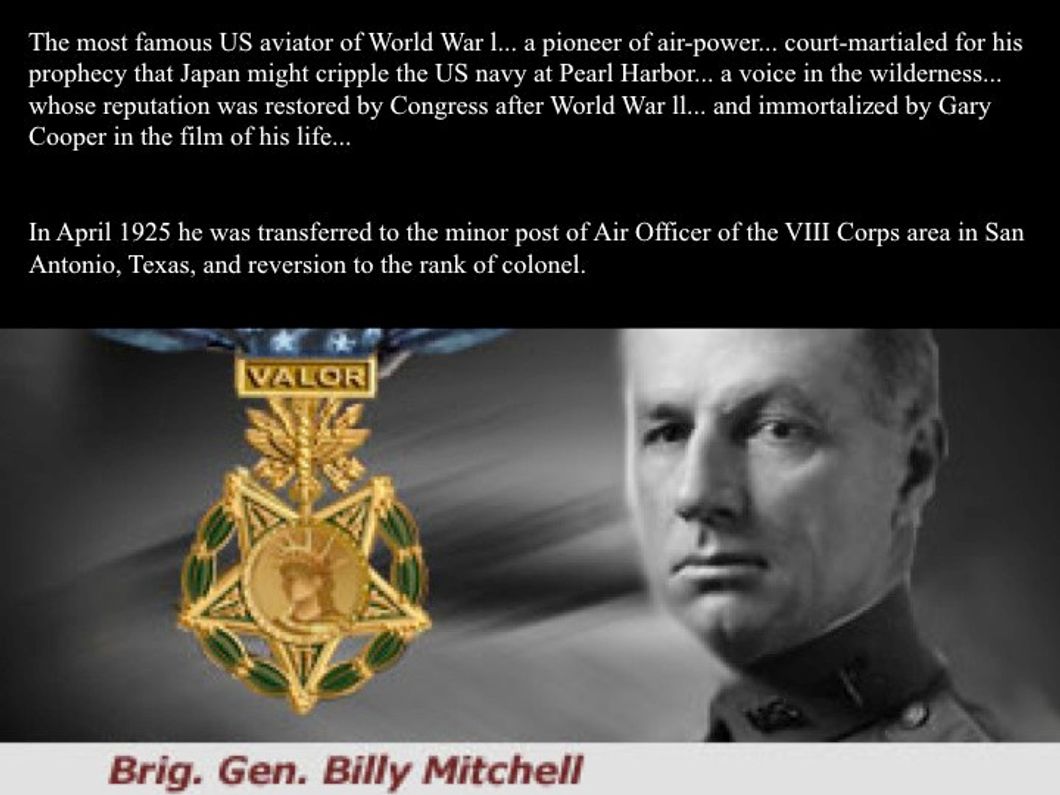On December 7th, we remembered the attack on Pearl Harbor that ushered America into World War II. Over three years of fighting ensued, and at great cost. As we recall this day, though, it is only fitting that we also recall a man who tried to save us from this fate and acknowledge his efforts. They went unnoticed in his own day, but that is not a reason to forget him in ours.
William "Billy" Mitchell joined the Army at 18 and went on to become the youngest Army General Staff of his time. He was a pioneer in aviation, believing that America needed to shift its focus from battleships to developing airpower. He not only provided research for this but actual evidence – he used a fleet of bombers to sink the then "unsinkable" German Ostfriesland. Still, those who disagreed remained unimpressed.
In 1924, he was instructed to inspect Hawaii and Asia. He returned with a report that literally detailed how Japan was the dominant nation of Asia, and could easily attack Pearl Harbor to incite war in the future. However, his warnings went unheeded, and his persistence was not appreciated. His fellow officers did not want to continue listening to his radical ideas, or his insistence that airpower was superior to the Navy. He was later court-martialed and resigned from his position.
A mere five years after his death, his prediction came true. Japan sent an air attack against Pearl Harbor, Hawaii, on December 7th, 1941. America was ushered into the Second World War, and lost an estimated over four hundred thousand soldiers. I can't help but wonder if history might have played out differently if Billy Mitchell had been listened to? Might some of those brave men still be alive, even today?
Billy Mitchell is a textbook example of a visionary leader – he was aware enough of his present to see how it might affect the future, and he tried to warn others about it. If we hope not to make the same mistakes of the past, we should listen to the lessons Billy Mitchell can teach us. Innovation – even if uncomfortable – is not always bad; some ideas that can be proved should receive the attention they deserve, especially if they can protect us.
Today, we could certainly use men and women as brave at Mitchell was – he did not go silent when he met opposition, nor when his career was threatened. After long years of many services, he still resigned rather than keep silent about what he believed in. If we hope to be leaders in our own day, we should take a lesson from Mitchell's persistence; and even from the example that sometimes it does not make you popular – but you can keep going anyway.












